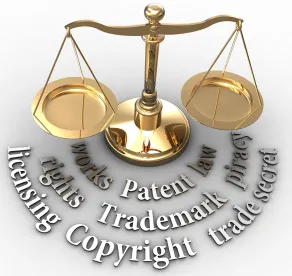Tuesday, February 8, 2022
Realtime Adaptive Streaming v. Netflix, Inc., No. 21-1484
In 2017, Realtime sued Netflix for patent infringement in the District of Delaware (“Delaware suit”). After Netflix pursued inter partes review (“IPR”) on the asserted patents, Realtime voluntarily dismissed the Delaware suit. Realtime then sued Netflix in the Central District of California (“California suit”) but voluntarily dismissed the California suit as well. Netflix moved in the California suit for attorney’s fees under 35 U.S.C. § 285 for the Delaware suit, the IPRs, and the California suit. The court awarded fees for the California suit only. Realtime appeals the award, and Netflix cross-appeals.
On appeal, Realtime argues the court erred in awarding attorney’s fees at all. First, Realtime argues, Netflix was not a “prevailing party” under § 285. According to Realtime, its voluntary dismissal without prejudice of the California suit did not make Netflix a “prevailing party,” because there was no “judicially sanctioned change in the legal relationship of the parties,” as RFR Industries, Inc. v. Century Steps, Inc. requires. Realtime argues the “two-dismissal rule,” by which a previous voluntary dismissal renders a subsequent voluntary dismissal a dismissal with prejudice, does not apply unless and until a third suit is filed, and Buckhannon Board & Care Home, Inc. v. West Virginia Department of Health & Human Resources did not hold otherwise. It argues that, even if the voluntary dismissal were with prejudice, it would not be a “final court decision,” citing O.F. Mossberg & Sons, Inc. v. Timney Triggers, LLC. Second, Realtime argues there was nothing “exceptional” in its choice to refile its suit in the Central District of California. It argues this type of forum selection is permitted by the Federal Rules, and even if this were forum shopping, as the court found, attorney’s fees cannot be awarded on that basis alone.
Netflix defends the court’s award of attorney’s fees for the California suit, arguing the “two-dismissal rule” applies and makes Netflix a “prevailing party.” Further, it argues, this case was “exceptional” overall, not only because of the two voluntary dismissals. On cross-appeal, Netflix argues it should have been awarded attorney’s fees for the IPRs and Delaware suit as well. According to Netflix, PPG Industries, Inc. v. Celanese Polymer Specialties Co. stated § 285 allows a prevailing party to recover fees incurred in a related Patent Office proceeding that is a “substitute for litigation,” and IPRs are such a substitute. And the Delaware suit, Netflix argues, is a related litigation of the kind the Ninth Circuit has held warrants fee shifting.
Wednesday, February 9, 2022
Alphatec Holdings, Inc. v. NuVasive, Inc., No. 20-2245
In a previous IPR sought by Medtronic, Inc. (“NuVasive I”), the Board found prior art references Frey and Michelson invalidated claim 1—the sole independent claim—of Alphatech’s patent. The Federal Circuit affirmed. Alphatec then sought IPR of dependent claims 6–9 and 18 of the ’334 patent (“NuVasive II”). At Final Written Decision, the Board stated that, from NuVasive I, collateral estoppel “applies to the unpatentability of claim 1,” and NuVasive was “precluded from relitigating [in NuVasive II] whether Frey and Michelson teach all the limitations of claim 1 . . ., including for purposes of determining the patentability of [the] dependent claims.” Only claim 18 survived. Alphatec appeals.
According to Alphatec, in upholding claim 18 the Board misapplied collateral estoppel. It argues the Board’s analysis rested on finding “Michelson does not support Petitioner’s proposed modification for making Frey’s implant long and narrow,” but the “long and narrow” limitation appears in claim 1 and was found in NuVasive I to be taught by Michelson and Frey. It adds the only additional limitation of claim 18—“wherein said maximum lateral width of said implant is approximately 18 mm”—was not addressed by the Board.
NuVasive responds that the Board properly applied collateral estoppel in analyzing claim 18. It argues Alphatec’s IPR, unlike Medtronic’s, argued claim 18 was unpatentable over Michelson, Frey, and an additional reference. According to NuVasive, the Board’s statements regarding Michelson pertained to a modification based on the additional reference that was not at issue in NuVasive II, so collateral estoppel did not apply. NuVasive also argues the PTAB has authority limited to that granted by Congress that does not include common-law-derived authority like the application of collateral estoppel.
Friday, February 11, 2022
Apple Inc. v. Zipit Wireless, Inc., No. 21-1760
In 2013, Zipit notified Apple that Apple’s iPhone® practiced Zipit’s patents and Apple required a license. Until 2016, the parties exchanged communications, with Zipit maintaining the patents were infringed and Apple contending the patents were invalid and not infringed. Zipit also made two in-person visits in Apple’s California offices. In 2020, Zipit asserted the patents against Apple in the Northern District of Georgia, where Zipit resides. After Zipit voluntarily dismissed its suit, Apple filed a declaratory judgment action in the Northern District of California (“district court”). Zipit moved to dismiss for lack of personal jurisdiction, and the district court granted Zipit’s motion. While the district court found the first two due process factors were met (Zipit (1) “purposefully directed its activities” at Apple, a resident of the forum, and Apple’s claim (2) “ar[ose] out of or relate[d] to” Zipit’s activities within the forum), it found the third due process factor was not because it would not be “reasonable” to exercise personal jurisdiction over Zipit. The district court found most of the Burger King Corp. v. Rudzewicz criteria for reasonableness met, but held Federal Circuit precedent, Red Wing Shoe Co. v. Hockerson-Halberstadt, Inc., required a finding of unreasonableness because Zipit’s contacts with the forum were only “for the purpose of warning against infringement or negotiating license agreements.” Apple appeals.
On appeal, Apple argues the court should have exercised personal jurisdiction over Zipit. Since Red Wing Shoe Co., it argues, other Federal Circuit cases like Trimble Inc. v. PerDiemCo LLC, have clarified that there is no bright-line rule prohibiting specific jurisdiction where a patentee’s activities in the forum are for the purpose of warning against infringement or negotiating license agreements. Trimble, it argues, cautioned against such “special rules for patent cases” and held the “central question” remains whether the due process factors are met. Apple argues Zipit’s communications to Apple and visits to the forum are sufficient under Burger King for a reasonable exercise of personal jurisdiction.
Zipit responds that it would be unreasonable for the district court to exercise personal jurisdiction over Zipit. It argues Red Wing Shoe held cease-and-desist letters and licensing offers of the kind it sent Apple do not establish personal jurisdiction. Red Wing, it argues, likened these to offers for settlement, which the Supreme Court has declined to use for jurisdiction, citing the public interest. It argues the Federal Circuit has held personal jurisdiction also cannot derive from the accused infringer’s residence in the forum, nor from visits to the forum to negotiate licenses.





 />i
/>i

